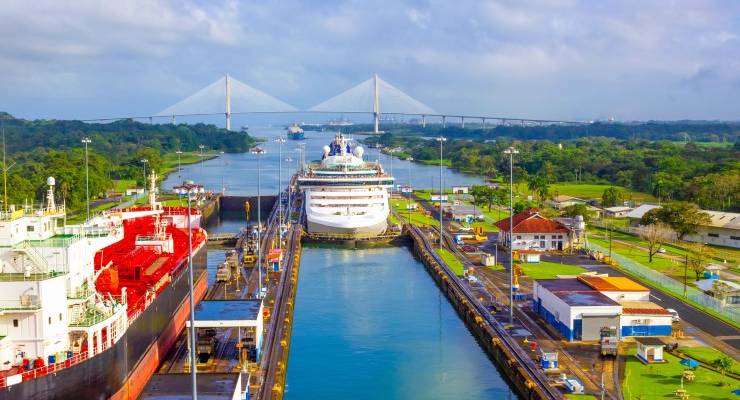
The havens and the haven-nots
As governments around the world leap into action to attempt to prevent businesses from collapsing and individuals from falling into dire poverty from COVID-19-related economic catastrodisasterageddon, there are concerns about those who will inevitably fall between the gaps.
Like, for example, international cruise lines.
Take Princess Cruises, for example, the part of the Carnival group which had almost transformed their image into purveyors of seaborne holiday and entertainment excellence rather than floating petri dishes. And then the Ruby Princess disgorged its viral load into Australia’s ports and look: as PR stunts go, giving the world a remake of Contagion was perhaps somewhat ill-considered.
But a bigger problem for the company, and so many like them, is that while Australia, the UK, the US, Germany, France and other countries are supporting local companies with loans and industry bailouts, the same cannot be said for Carnival’s home nation. Which is Panama.
Tragically, it turns out that registering your business in a tax haven might be a groovy way to smugly avoid contributing to society in happier economic times, but abruptly becomes a big problem when things go bad and the only way your company and industry might survive is if the society you were profiting from chooses to support you using (checks notes) public revenue traditionally raised by taxation.
Indeed, while US company bailouts were specifically left rubbery because of the lobbying of cruise lines, President Trump conceded that they probably still couldn’t give them any money because it is “very tough to make a loan to a company when they’re based in a different country”.
So spare a thought for all those poor, poor businesses whose offices are registered in countries with little or no tax obligations. Maybe we should set up a fundraising site to help. Say, is www.hahahagloriouspoeticjustice.org still available?
No fooling Thailand
April Fools Day is a garbage event at the best of times, but even more so since the definition of “fooling” was expanded to mean “just being a dick”.
It always leads to high profile pranks, like Andrew Bolt going on his Sky News program to tell his elderly viewers that COVID-19 wasn’t that big a deal and that the threat of contagion was “wildly exaggerated” — a zany prank so well-thought-out and hilarious that he couldn’t even wait until April 1 to pull it. (At least we assume it was a prank.)
But you have to hand it to Thailand, which didn’t just embarrass people on social media about their terrible tomfoolery; it actually threatened to imprison them.
More specifically, anyone making a joke about COVID-19 — about having it, about not having it, about how it’s spread or prevented — could win themselves a raft of punishments including up to five years imprisonment.
It’s a refreshingly no-nonsense approach, given that many South-East Asian countries are giving advice which is rather more idiosyncratic. Particularly Malaysia, whose government have been forced to apologise in recent times for giving advice like that drinking warm water will kill the virus, and that women should avoid causing distress during lockdown by not nagging and being sure to look pretty.
Anyway, if April Fools Day is one of the victims of the virus then it’s a small but significant win.
Island life
Getting a termination for an unwanted pregnancy can be necessarily difficult depending on which bit of Australia one is living, with a shortage of doctors in many regions exacerbated by concerns over the cancellation of elective surgery in preparation for… well, you know.
It’s a huge problem for late-gestation abortions, since Victorians in need were reliant on doctors flying in from South Australia, which is now impractical because of travel restrictions and forced quarantine.
And that news might have made you go: “Wait, what happens to Tasmanians? Weren’t they supposed to travel to Melbourne if they needed an abortion, since the last low-cost centre in the state reportedly closed in 2018 when its only doctor retired?”
Well, the state government’s plan to push people to the mainland for procedures fell through, to the surprise of no one. The better news is that abortion services do still operate in Tasmania, although they’re reportedly tricky to find, as providers are concerned that they’d be swamped by demand.
But they’re almost entirely based in Hobart, which is a problem if you’re in Burnie or Launceston or pretty much everywhere else in the state.
So if you’re a Tasmanian seeking an abortion in these already plenty-stressful times (or needing some financial support for it) then get in touch with Women’s Health Tasmania, Family Planning Tas, The Link Youth Health Service or Pulse Youth Health Service, and they will steer you right.








I’m a patreon supporter of APS and purchased an anuual subscription for Crikey just to read this article. The schadenfreude was worth every cent.